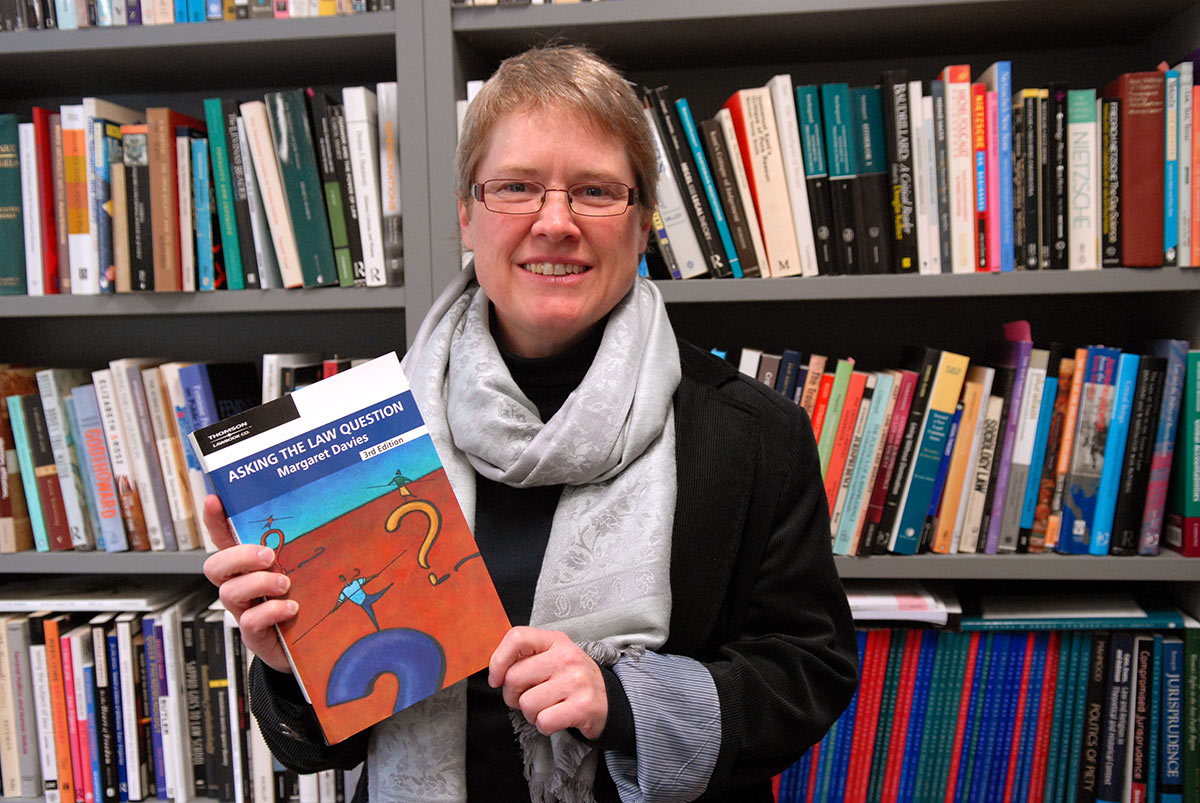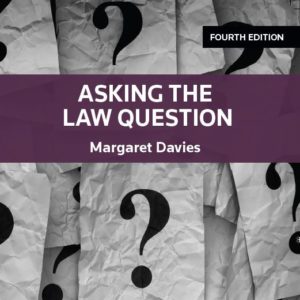

Flinders Professor of Law Margaret Davies is extending her own bibliography, aiming to keep pace with “the changing place of law in a complex world”.
“I’ve still got much more I need to say,” says Matthew Flinders Distinguished Professor Davies, who addresses some wide-ranging interdisciplinary questions in two new book releases, including the fourth edition of a highly regarded textbook on legal theory.
First published in 1994, Asking the Law Question is widely used by undergraduates, postgraduates and researchers of jurisprudence in Australia and overseas.
Along with updates on recent trends, the latest edition of the Thomson Reuters (Professionals) publication has new chapters on socio-legal philosophy and environmental jurisprudence.
“The text provides succinct explanations of key ideas, as well as in-depth analysis and critique,” the cover says.
“Suitable for students of jurisprudence, introductory law, feminist legal theory and sociology of law, this book has also proved to be of considerable interest to legal scholars wishing to improve their knowledge of legal theory.”
Professor Davies says her research and publishing is focused on the future.
“It’s all part of the process of understanding the changing place of law in a complex world and trying to improve the conditions for justice – in particular gender justice, justice for Indigenous people, and to be attentive to environmental imperatives,” she says.
The other new publication, Law Unlimited (Routledge), is a research contribution in legal theory, looking at the ways in which the law interacts with and shapes every-day life and physical world.
In tackling the persistent question of ‘what is law’, Professor Davies takes the idea of law beyond its conventional bounds ‘into the material and plural domains of an interconnected human and non-human world’ and how it takes many forms in addition to the national state law with which we are familiar.
“Reading, crystallising, and extending themes that have emerged in legal thought over the past century, this book is the culmination of the author’s 25 years of engagement with legal theory,” the book’s cover says.
“Its bold attempt to forge a thoroughly contemporary approach to law will be of enormous value to those with interests in legal and socio-legal theory.”

